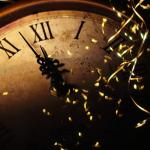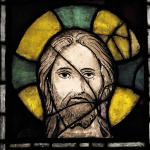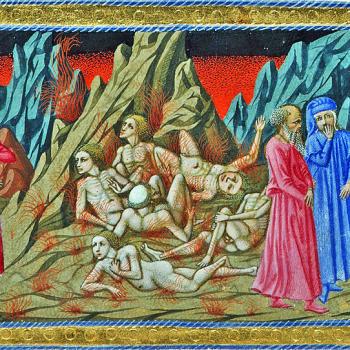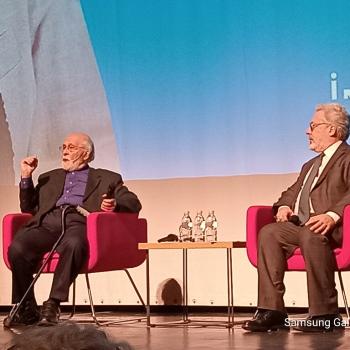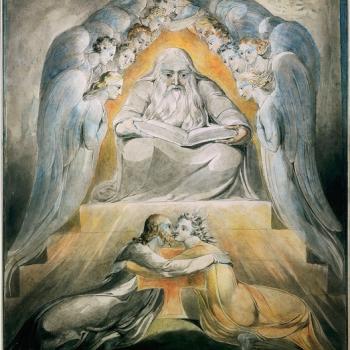
I’ve been a fan of J.R.R. Tolkien and his works for most of my life. Looking back, I think my initial interest came from Rankin/Bass and their versions of The Hobbit and The Return of the King, though I remember seeing Ralph Bakshi’s The Lord of the Rings with my family. We also owned a lp of The Hobbit, which I listened to when I was young. All of these influenced my initial take on Middle Earth, so that when I started reading, I read The Hobbit and The Lord of the Rings. I remember, in third grade, my teacher took a picture of me reading The Fellowship of the Ring; looking back, she probably was surprised someone so young was reading such a novel, but it was one I carried with me for quite some time as I read through it. What I got out of it then was far less than I would get out of it later, but I was enchanted by Tolkien and his world. Later, I would turn to his other books, fiction and non-fiction alike, as I found them (or they were released), and each time, I was drawn deeper into the themes which Tolkien placed throughout his writings, many of which I would later write upon myself.
When Peter Jackson released his version of The Lord of the Rings and then later, The Hobbit, there were many aspects of them which I liked. My favorite film of his is The Fellowship of the Ring, as I think it did the best presenting Tolkien’s vision, despite the liberties taken in it. Sadly, I found The Two Towers disappointing, as I found it greatly changed the story in ways which not only were not needed, not only made the story worse, but did so in a way which radically changed characters and their motivations (such as the way Faramir abducted Frodo and took him to Osgiliath). What I found to be extremely distasteful was the way Peter Jackson, Fran Walsh, Philippa Boyens, and Stephen Sinclair suggested that the changes they made were not done simply because books need to be adapted to be filmed, but because they thought they improved Tolkien’s story. Saying this, they proved they did not understand Tolkien’s work and the themes he put in it, themes which often reflected Tolkien’s own religious (Catholic) sensibilities. The Return of the King was much better, and rounded off the trilogy well, allowing me to enjoy Jackson’s films despite the ways he departed from Tolkien’s vision.
When The Rings of Power was announced for Amazon, I was not certain how it would work. I was curious enough to watch the first season, especially as I saw that the producers were concerned to make sure the show followed the spirit of Tolkien, even if, like Jackson’s movies, there would be changes to fit the format (as well as having new characters and story elements which the producers hoped would fit into Tolkien’s narrative). I liked what I saw, even if I could and did find elements which I would have done differently, for, despite those differences, I found the show worked and felt truer to Tolkien’s ethos than Jackson’s movies. I certainly rejected all those who mercilessly lambasted the show, thinking many of them, who often tried to say the show departed from Tolkien’s stories, did not know Tolkien’s work and the way Tolkien wrote a variety, sometimes contradictory, stories concerning the Second Age of Middle Earth. I also found they often came from a far-right (alt-right, “anti-woke”) ideology which was far from Tolkien’s own take (indeed, it was one which Tolkien specifically rejected and fought against while he was alive).
Having seen the beginning of the second season of The Rings of Power , I find the show has developed, and that development improved what I already found to be acceptable. While the first season set things up, and in doing so, changed the sequence of events as found in various versions Tolkien produced of the Second Age of Middle Earth, the second season does not have to do all the set-up and so is far more ready to continue with its presentation of the Second Age. In doing so, I find it is highlighting many of Tolkien’s themes, showing how much better the production team understood Tolkien and his thought, and what made it great, than Peter Jackson. We find, for example, the show pointing out how forgiveness and mercy is necessary, and when it is resisted, it can lead to disastrous results (this theme is especially prevalent in the story of King Durin III and his son, During IV, as both of them are being rather stubborn, and in their stubbornness, they are unable to come together to deal with the problems which are beginning to happen in Khazad-dûm).
What I think is most compelling, and most sympathetic to Tolkien’s own concerns, is the way evil is being shown in the series; evil is not shown as something which is simple and easy to see and discern, but rather, as something which entices people with elements of the good and uses those elements to corrupt them and their actions (which can be seen in the way Sauron is being portrayed, as he is shown to have a great amount of charm, one capable of convincing people to do the things he wants them to do, things which ultimately would give him more power, allowing him to slowly become the Dark Lord over all things). Similarly, we see this in the presentation of the orcs, where they are shown not to be creatures of pure evil, something which Tolkien found difficult to portray and yet which he knew had to be the case; the show gives us a sense of what the orcs want, how Sauron tried to use their desires to gain control over them and use them, and how some rebelled against Sauron because they saw him and his attempt to dominate them would not give them the freedom, including freedom from war, which they wanted (and, despite the way some critics have responded to this, we can find elements of this in The Lord of the Rings, when the orcs are given a chance to speak for themselves, for they show how weary they are being used and how they long for the times when they were not being used to wage war in the world). Tolkien saw the orcs as being corrupted beings; how that corruption took place and the level of corruption they had was something he explored throughout all his life. We do not need to see The Rings of Power as giving definitive answers to those questions, but we can see it giving potential solution to them as it gives us its telling of the Second Age of Middle Earth.
The Rings of Power is becoming my favorite filmed representation of Middle Earth. I hope the care and effort which the producers and writers have shown us continues throughout the full run of the series. I have heard rumors which, if they prove true, would indicate a great departure from Tolkien and his works, in a way which I would find unacceptable (such as the notion that Tom Bombadil would be shown to be some sort of form of Morgoth). Most of those rumors, I think, are false, and have been spread by people who want to hurt the show because of the hate they have developed for it (I remember, before the show was in production, rumors which proved to be false, such as the show would be like Game of Thrones, full of nudity and sexuality, which is one of the reasons why I think the worst ideas will prove to be false).
I still have a fondness for Peter Jackson’s films, especially The Fellowship of the Ring but the writers behind The Rings of Power get the spirit of Tolkien, something which Jackson did not, and that bodes well for the future of the show. Yes, it is a television series, and yes, it is a retelling of Tolkien’s myths, and so it will do things which Tolkien would not have done with the story. However, I feel Tolkien would have approved the show far more than Jackson’s films. I think he would have been happy seeing his myths being taken up and retold by others, because that would have proved that his myths had taken a life of their own, and what he wanted to produce, a living myth, would have been accomplished. When we study myth, we find, even in the same culture, there are many tellings of the same story, tellings which contradict each other and yet, somehow, still connect with each other by the key events and themes contained in them. Tolkien understood this, which is why he would not complain the way some of his supposed fans do about the way The Rings of Power tells his stories differently than he did. Indeed, he would see the show tried to pick up his concerns and show ways to deal with them, such as the way he tried to understand the nature (and history) of the orcs. Tolkien did not leave us one, unalterable text concerning the events portrayed in The Rings of Power. That is, the Second Age is not like the Third Age as presented in The Lord of the Rings. The Second Age is far more mythic, far more open to many tellings; indeed, because it is open for them, it allows his story to live on and be told and retold in new ways, making sure the story does not become forgotten as history moves on. Now, it truly is mythic, and people can pick up his stories and add to them, making sure they can live on and be told and retold for many years to come.
*Personal Reflections And Speculations
Stay in touch! Like A Little Bit of Nothing on Facebook.
If you liked what you read, please consider sharing it with your friends and family!
N.B.: While I read comments to moderate them, I rarely respond to them. If I don’t respond to your comment directly, don’t assume I am unthankful for it. I appreciate it. But I want readers to feel free to ask questions, and hopefully, dialogue with each other. I have shared what I wanted to say, though some responses will get a brief reply by me, or, if I find it interesting and something I can engage fully, as the foundation for another post. I have had many posts inspired or improved upon thanks to my readers.


